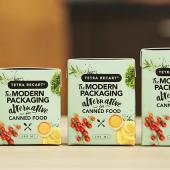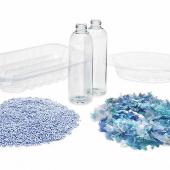Rosy's fabric
"Ideas give people courage". This phrase, attributed to French politician Georges Clemenceau (1841-1929), offers the cue to Aldous Huxley for a broad reflection on today's reality which, in my opinion, is not so different from that of 1931 (the year in which he published his "Beliefs and Action" essay). Editorial by Stefano Lavorini.
 To see a world in a grain of sand, and a heaven in a wild flower.
To see a world in a grain of sand, and a heaven in a wild flower.
William Blake, "Auguries of Innocence".
«Ideas give people courage The phrase could be expanded. Because from ideas comes not only courage, but also determination, as well as the ability to act and continue to act consistently. Although it is indeed true that almost all ideas are rationalizations of feelings, this does not mean that feelings are more important than ideas in the world of action.
Feeling represents the original source of energy, but this source is soon exhausted if the passion is not rationalized ... ».
As if it were a premonition of a strange fatality, I find myself face to face with people and facts that seem to confirm the statements read a few hours before.
Everything rotates and is built around a few elements:
- the Fabric, which in substance is no more than a cloth, obtained by alternately passing the warp thread above and below the weft threads, with a result uniform and equal on both the top and the downside, as the dictionary explains;
- Rosy, an atypical entrepreneur, mother and grandmother, able to live her age graciously, true feelings and a touch of reasoned imprudence;
- a very special company, halfway between the world of textiles and that of cosmetics - Nastri Tex - that Federico Mocchetti, key executive, likes to think of as a multinational craft concern.
Hence I intertwine conceived facts, accounts and actual reality ...
The building that welcomes me has a pyramid-shaped façade, like the logo of Nastri Tex, a company that came into being in 1980 in Busto Arsizio at the behest of Rosy Sarasini, who until then had been an accountant in a small weaving mill, which had recently started producing fabric for compacting cosmetic powders.
Rosy did everything and more, placing herself at the service of the first big third party producers that were becoming established and that were to have made Italy a manufacturing centre of excellence at a global level in the field of cosmetics. Now they are called contract manufacturers, offering brands a complete service from research to marketing, but then they had the problem of replacing the paper used in the production of eye shadows, powders, fard and the solution came from Nastri Tex.
In 2003, her son, Federico Mocchetti, joined the company and, after graduating from Milan’s Bocconi University, teaching at the LIUC University, working in a management consulting firm, he became a qualified chartered accountant and gained experience for a few years in a practice.
«Giving up a managerial career to engage in the company was a tough decision, which I made with my heart: I asked myself whether I was happier in the morning going to the accountancy firm or to the company to become an entrepreneur, and I drew the consequences.
Today he appears extremely happy and totally committed towards making his small concern a model in which the principles and practices typical of big business coexist – this with particular attention to everything concerning quality control, customer service, market opening, care for the personnel, social responsibility, combined with all the functionality and care of a craft concern.
«Over these years the cosmetics sector has given us a hand, which has always grown, but so too our vocation to internationalization: trade fair following on trade fair, today we make 40% of turnover abroad, exporting to over 25 countries, from the United States to Japan».
We started out with a single fabric... But over time the quality, image and productivity standards of the cosmetics industry have changed. Nastri Tex has jointly developed more than 50 articles, including technical fabrics created ad hoc, non-woven fabric or combinations of cellulosic materials and textile fibres, fabrics made with 100% recycled materials, the company thus detaching itself from the world of clothing.
«We are not a textiles company, we are not a cosmetics company - Mocchetti summarises - but we have in-depth knowledge of both these worlds, to the point where customers entrust us with the development of new products. This too by virtue of a code of ethics that centres on the utmost confidentiality in current projects».
But it is above all the "intangible" aspects, including safety, environmental and social sustainability with a view to the circular economy, that are important to the entrepreneur.
First and probably still unique, for 15 years their products have been OEKO-TEX certified, meaning that they are suitable for skin contact.
Now in the company they are experimenting with an alternative to bringing the processing scraps to the dumps, collecting and separating polyamide, polyester, cellulosic materials, to give them to other companies able to obtain new yarns that can be used for other applications, and are considering the recovery of used fabrics from producers and the re-use of the same.
This sense of extended responsibility is also reflected in the initiatives for the 15 employees and the social sector: free nursery for women workers, flexible hours, and rewards to all employees connected with the good performance of the company.
And on top of that there is the five-year collaboration with the local association "Bianca Garavaglia Onlus" to help and support initiatives combating childhood cancer, a budget being regularly allocated each year by the company contributing towards the various scheduled initiatives.
In short, it seems to me that there is enough to reassure one of a way of doing business, which goes well beyond the mere conquest of power and getting rich.
"Talent is not enough. It takes courage to change people's hearts"*.
* From the movie "Green Book", by Peter Farrelly

















